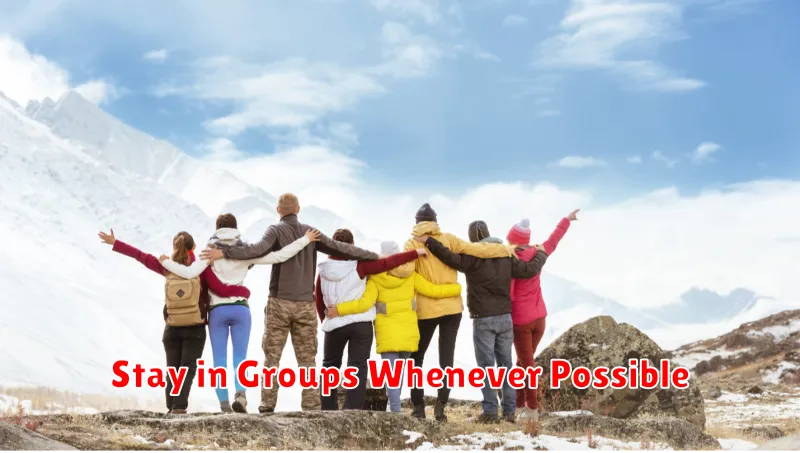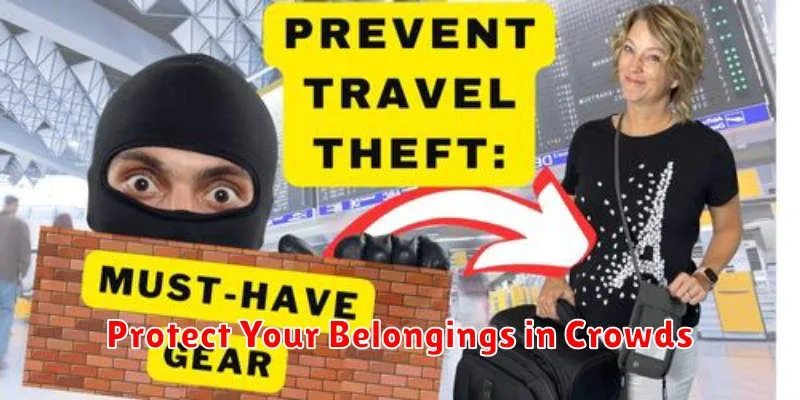Traveling during festivals can be an incredibly enriching experience, offering unique cultural insights and vibrant celebrations. However, the increased crowds and logistical challenges associated with festival travel necessitate careful planning and attention to safety. This article will provide essential safety tips for traveling during festivals, covering topics ranging from protecting your belongings to navigating crowded environments and ensuring your personal well-being. By following these guidelines, you can maximize your enjoyment and minimize potential risks while experiencing the excitement of a festival.
Festival safety is paramount for a positive travel experience. Whether you are attending a music festival, a religious celebration, or a cultural event, understanding the potential safety concerns is crucial. This article will address common festival safety issues such as theft, crowd management, health concerns, and emergency preparedness. By understanding and implementing these essential safety tips, you can confidently navigate the unique challenges presented by festival travel and enjoy a safe and memorable experience.
Why Festivals Can Pose Safety Challenges
Festivals, while offering exciting experiences, often present unique safety challenges due to the convergence of large crowds in potentially unfamiliar environments. Crowd density itself can create risks of crushes, stampedes, and difficulties in accessing emergency services. The festive atmosphere, often combined with alcohol consumption, can lead to impaired judgment and increased vulnerability to theft or assault.
Limited resources such as restroom facilities, food vendors, and medical aid stations can be strained by the sheer number of attendees, creating further challenges. Environmental factors like extreme heat, cold, or inclement weather can also pose safety concerns, especially in outdoor venues with limited shelter.
Temporary infrastructures used for staging, lighting, and sound systems can present hazards if not properly installed and maintained. Furthermore, the influx of visitors to an area can strain local resources and potentially increase crime rates due to opportunities created by the crowds and distracted individuals.
Plan Your Route and Accommodation Early
Festivals often draw large crowds, impacting transportation and lodging availability. Booking accommodations well in advance secures your stay and prevents last-minute scrambles for overpriced options or, worse, no place to stay at all. This is especially crucial for popular festivals known to attract a substantial number of attendees.
Planning your travel route is equally important. Research potential road closures, traffic diversions, and increased travel times due to the festival. Having alternative routes mapped out can save you valuable time and reduce stress. Consider public transport options or designated festival transportation services, which can often be more efficient than navigating congested roads in a personal vehicle.
Confirm your bookings closer to the festival date. This simple step verifies that your reservation is still active and avoids unpleasant surprises upon arrival. Keep copies of your confirmation emails or booking numbers readily accessible, both digitally and physically, in case of technical difficulties or lost devices.
Stay in Groups Whenever Possible

Festivals are exciting events that draw large crowds, creating a vibrant but sometimes unpredictable atmosphere. For your safety, it’s strongly recommended to stay in groups whenever possible. There is safety in numbers, and being with a group can deter potential problems.
If you’re traveling with friends or family, stick together, especially at night or in crowded areas. Establish a meeting point in case anyone gets separated. If you’re traveling solo, consider connecting with other travelers at your accommodation or joining organized tours or activities to form a group.
Being in a group makes you less of a target for petty theft or other undesirable situations. It also provides support if you experience any difficulties, such as getting lost or needing medical assistance. Communicate clearly with your group about your plans and check in with each other regularly.
Protect Your Belongings in Crowds

Festivals are exciting, but large crowds can also create opportunities for theft. Be vigilant about protecting your belongings. Keep valuables close to your body. Consider using a cross-body bag or a small backpack worn in front.
Avoid putting your phone or wallet in your back pocket. A money belt worn under your clothing can be a good option for concealing cash and important documents. Minimize the amount of cash you carry and leave unnecessary valuables at home or in your hotel safe if possible.
Be especially aware of your surroundings in densely packed areas. Distraction tactics are sometimes used by pickpockets. If someone bumps into you, immediately check your belongings. If you’re traveling with friends, look out for each other’s belongings as well.
Stay Hydrated and Aware of Exits
Festivals are exciting, but the combination of crowds, activity, and potentially hot weather can lead to dehydration. Dehydration can impair your judgment and slow your reaction time, compromising your safety. Carry a reusable water bottle and refill it throughout the day. Many festivals provide water stations. If not, ensure you purchase water regularly. Avoid excessive alcohol consumption as it further dehydrates the body.
In the excitement of a festival, it’s easy to lose track of your surroundings. Take a moment when you arrive to locate the exits. Familiarize yourself with multiple escape routes in case of an emergency. If you’re with a group, establish a meeting point in case you get separated. This will save valuable time in a critical situation. Knowing where to go in an emergency can be the difference between safety and danger.
Be Wary of Overpriced Vendors
Festivals often attract vendors selling food, drinks, souvenirs, and other goods. While many are legitimate, some may inflate prices, taking advantage of the festive atmosphere and captive audience. Be particularly cautious of vendors who don’t clearly display prices. Always inquire about the cost before committing to a purchase.
Compare prices from different vendors if possible. A significant price difference for similar items could signal price gouging. Consider bringing some basic necessities, like snacks and water, especially if you’re on a budget. This can help you avoid impulse purchases from overpriced vendors.
If you suspect a vendor is unfairly overcharging, report them to festival organizers or local authorities. Documenting the vendor’s location and the inflated price can be helpful in these situations. While enjoying the festivities, remain a discerning consumer to protect yourself from unnecessary expenses.
Learn the Cultural Significance Before Participating
Festivals often hold deep cultural and religious significance for the local community. Understanding the history and traditions behind the celebration will not only enrich your experience but also help you avoid unintentional disrespect. Research the festival beforehand to learn about appropriate attire, customs, and behaviors.
Respectful participation demonstrates your appreciation for the local culture and helps build positive relationships with community members. This includes being mindful of sacred spaces, rituals, and any restrictions on photography or videography. For example, some festivals may have designated areas where photography is prohibited, or certain rituals that outsiders are not permitted to witness.
Be aware of any specific customs related to interactions with religious figures or elders. Some cultures have specific protocols for addressing or approaching individuals of authority or reverence. By taking the time to learn these customs, you demonstrate respect and avoid causing offense.

